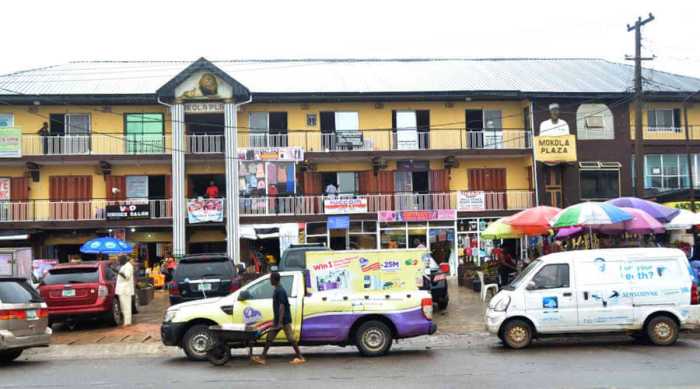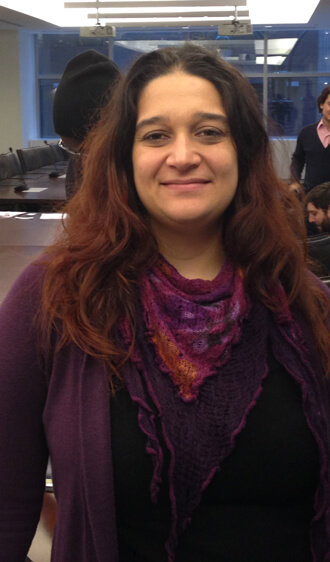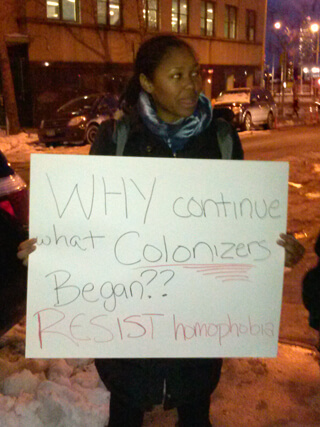Nigerian President Goodluck Jonathan at the 2013 World Economic Forum in Davos, Switzerland. | REMY STEINEGGER/ WORLD ECONOMIC FORUM
At least three-dozen gay men have been arrested and tortured in Nigeria in recent weeks, even before a draconian new homophobic law took effect, human rights activists told the Associated Press.
The AP, on January 14, quoted Dorothy Aken’Ova, executive director of Nigeria’s International Center for Reproductive Health and Sexual Rights, saying that police in the state of Bauchi had detained and tortured four men, forcing them to reveal the names of other gay men. The police, she said, put together a list of 168 men who are now targets for arrest.
An AIDS counselor said the crackdown “began with a wild rumor that the United States had paid gay activists $20 million to promote same-sex marriage” in Nigeria. The man, who spoke to the AP anonymously out of fear of arrest, said he had helped bail 38 gay men out of jail since the end of December.
Nigeria’s new Same-Sex Marriage Prohibition Act, whose final approval was announced on January 13, metes out punishments of up to 14 years in jail for gay marriages and up to 10 years for belonging to or promoting gay organizations. Activists told the AP that AIDS groups serving gay men are targeted under the new law.
Gay men are fleeing the Bauchi region, both Aken’Ova and the AIDS counselor told the newswire service.
The AP quoted Mustapha Baba Ilela, who chairs the Bauchi Shariah Commission that oversees enforcement of Islamic law in the region, saying, “We are on the hunt for others.” Of 11 men he said had been arrested –– all but one of them Muslim –– each had signed a confession acknowledging membership in a gay organization.
Nigerian President Goodluck Jonathan, who signed the new legislation, has not spoken out about homosexuality, according to the AP, but a spokesman for him said, “This is a law that is in line with the people’s cultural and religious inclination. So it is a law that is a reflection of the beliefs and orientation of Nigerian people.”
Olumide Makanjuola, who heads up the Initiative For Equality in Nigeria, said attorneys for the group are helping several gay men challenge their arrests. He told the AP that police confiscate the cell phones of suspected gay men in their custody and send out text messages to snare other suspects. Those arrested, he said, are pressured into paying bribes to win their freedom.
In a January 13 written statement, US Secretary of State John Kerry said, “The United States is deeply concerned by Nigeria’s enactment of the Same-Sex Marriage Prohibition Act. Beyond even prohibiting same-sex marriage, this law dangerously restricts freedom of assembly, association, and expression for all Nigerians. Moreover, it is inconsistent with Nigeria’s international legal obligations and undermines the democratic reforms and human rights protections enshrined in its 1999 Constitution. People everywhere deserve to live in freedom and equality. No one should face violence or discrimination for who they are or who they love. We join with those in Nigeria who appeal for the protection of their fellow citizens’ fundamental freedoms and universal human rights.”
UNAIDS, the world body’s initiative that combats the HIV epidemic, issued a statement voicing “deep concern that access to HIV services for lesbian, gay, bisexual, and transgender people will be severely affected by a new law in Nigeria — further criminalizing LGBT people, organizations, and activities, as well as people who support them.”



































